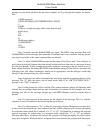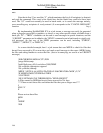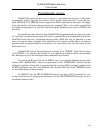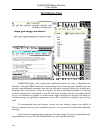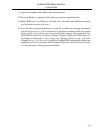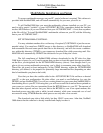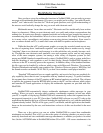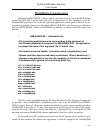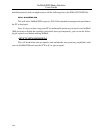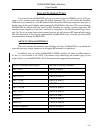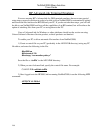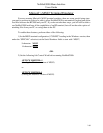
NetMail/3000 Menu Interface
Users Guide
2-95
MultiMedia Customization
When the NetMail/3000 PC software installs, one of the processes scans the MS Windows
control file (WIN.INI) to get an idea of the types of applications you have installed on your PC.
NetMail/3000 generates a list of the file types and applications which process them in a com-
pressed (but readable) format in a file called NMLAUNCH.INI in the directory you defined in
with the NETMAILMM variable (C:\NETMAIL by default). A sample control file might look
like this:
; NMLAUNCH.INI - initialization file
; File containing applications to be run according to the extension of
; the filename passed as the argument to NMLAUNCH.EXE - the application
; is passed the name of the ’argument’ file at ’launch’ time.
; File format is free and flexible: {extension name} = {application to run}
; Spaces (and tabs) may be used freely as delimiters. When a semicolon (’;’)
; appears at any position of any line, the remainder of the line is considered
; a comment and is ignored, as is an entirely blank line.
rc1 = c:\r1win\r1win.exe
rcl = c:\r1win\r1win.exe
rcf = c:\r1win\r1win.exe
cal = calendar.exe
crd = cardfile.exe
trm = terminal.exe
txt = notepad.exe
ini = notepad.exe
bmp = pbrush.exe
wri = write.exe
rec = recorder.exe
hlp = winhelp.exe
not = notepad.exe
The file is easily modifiable using any PC based file editor (in fact, Windows Notepad will
do just fine). Since NetMail/3000’s installation process only scans the WIN.INI file [EXTEN-
SIONS] section, there are often other applications which you might want to identify and allow
NetMail/3000 to pass files to. To add a new application and file type to the control file, simply
open the file using a file editor, add the new extension = application line, and keep the file. The
next time you start up NetMail/3000, the new application’s data files will be recognized.
For example, many PCs without sound cards have the PC Speaker driver installed to play
sounds on their machine. By default, this application is often not caught by the NetMail/3000



